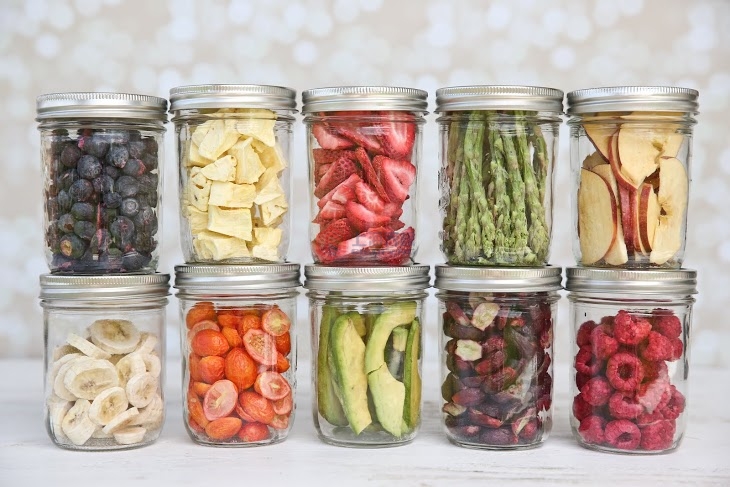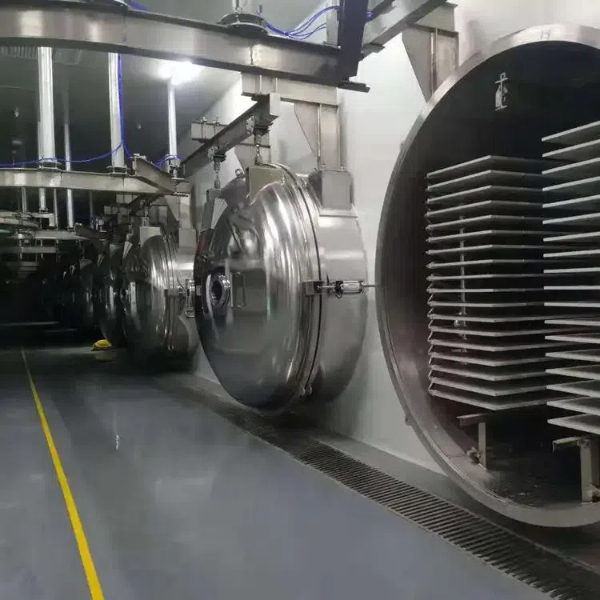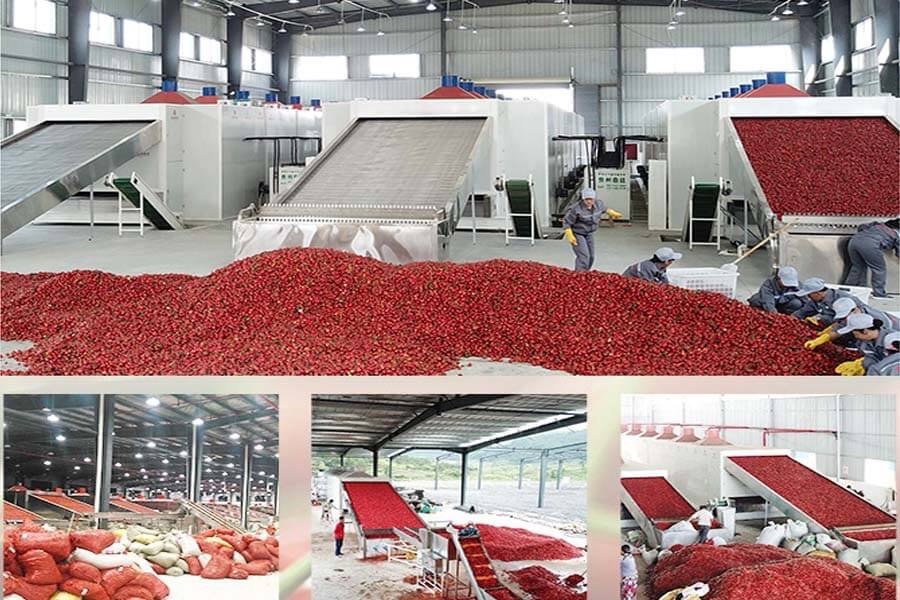
Content Menu
● Introduction to Freeze Drying
● Understanding Home Freeze Dryers
>> How Freeze Dryers Work
● Popular Home Freeze Dryer Brands
>> Harvest Right Home Freeze Dryer
>> Key Features of Home Freeze Dryers
● Benefits of Home Freeze Drying
● The Freeze Drying Process: Step by Step
● Considerations Before Buying a Freeze Dryer
● Tips for Successful Freeze Drying
● Creative Uses for Freeze-Dried Foods
● Conclusion
● Frequently Asked Questions
>> Q1: How long does freeze-dried food last?
>> Q2: Can you freeze dry any type of food?
>> Q3: How does freeze-drying compare to other food preservation methods?
>> Q4: How much electricity does a home freeze dryer use?
>> Q5: Is it cost-effective to own a home freeze dryer?
Introduction to Freeze Drying
Freeze drying, also known as lyophilization, is an advanced food preservation method that has gained significant popularity among home food enthusiasts and preppers alike. This process involves removing moisture from food while preserving its nutritional value, flavor, and texture. The result is lightweight, shelf-stable food that can last for years when properly stored. But what machine do you use to freeze dry food at home? Let's dive into the world of home freeze dryers and explore everything you need to know about this fascinating technology.
Understanding Home Freeze Dryers
Home freeze dryers are specialized appliances designed to remove moisture from food through a process of freezing and sublimation. These machines typically consist of a freezing chamber, a vacuum pump, and a heating system. While industrial freeze dryers have been used for decades in the food and pharmaceutical industries, the availability of home-use models has revolutionized food preservation for individuals and families.
How Freeze Dryers Work
The freeze-drying process involves three main stages:
1. Freezing: The food is rapidly frozen to temperatures below -40°F (-40°C).
2. Primary drying: The pressure in the chamber is reduced, and heat is slowly applied, causing the ice to sublimate directly into vapor.
3. Secondary drying: Any remaining moisture is removed through evaporation.
This process preserves the food's structure, resulting in a product that can be easily rehydrated and maintains most of its original properties.

Popular Home Freeze Dryer Brands
When it comes to home freeze dryers, one brand stands out above the rest: Harvest Right. This company has pioneered the development of affordable, user-friendly freeze dryers for home use. Let's take a closer look at some of their popular models:
Harvest Right Home Freeze Dryer
Harvest Right offers several sizes of home freeze dryers to suit different needs:
1. Small: Ideal for individuals or small families
2. Medium: Perfect for average-sized families or those with gardens
3. Large: Designed for large families or small-scale food production
These machines are capable of preserving a wide variety of foods, including fruits, vegetables, meats, dairy products, and even complete meals.
Key Features of Home Freeze Dryers
When choosing a freeze dryer for home use, consider the following features:
- Capacity: How much food can be processed in a single batch?
- Cycle time: How long does a typical freeze-drying cycle take?
- Energy efficiency: What are the operating costs?
- Ease of use: Is the machine user-friendly and easy to maintain?
- Warranty and support: What kind of customer service does the manufacturer offer?

Benefits of Home Freeze Drying
Investing in a home freeze dryer offers numerous advantages:
1. Long-term food storage: Freeze-dried foods can last up to 25 years when properly packaged.
2. Nutritional preservation: The process retains most of the food's original nutrients.
3. Flavor retention: Freeze-dried foods maintain their taste and can be rehydrated to near-original quality.
4. Versatility: You can freeze dry a wide range of foods, including fruits, vegetables, meats, and even ice cream.
5. Cost savings: While the initial investment is significant, it can lead to long-term savings on food costs and reduced waste.
The Freeze Drying Process: Step by Step
To better understand how to use a freeze dryer, let's walk through the typical process:
1. Preparation: Clean and cut food into uniform pieces for even drying.
2. Loading: Arrange food on the freeze dryer trays, ensuring proper spacing.
3. Freezing: The machine rapidly freezes the food to very low temperatures.
4. Primary drying: The vacuum pump activates, and sublimation begins.
5. Secondary drying: Any remaining moisture is removed through controlled heating.
6. Completion: The machine signals the end of the cycle.
7. Packaging: Remove the dried food and store it in airtight containers or mylar bags with oxygen absorbers.
Considerations Before Buying a Freeze Dryer
While home freeze dryers offer many benefits, there are some factors to consider before making a purchase:
1. Initial cost: Home freeze dryers can be a significant investment, with prices ranging from $2,000 to $4,000 or more.
2. Space requirements: These machines are relatively large and require adequate space for operation.
3. Noise levels: The vacuum pump can be noisy during operation.
4. Energy consumption: Freeze dryers use a considerable amount of electricity during each cycle.
5. Maintenance: Regular cleaning and occasional oil changes for the vacuum pump are necessary.
Tips for Successful Freeze Drying
To get the most out of your home freeze dryer, consider these tips:
1. Choose high-quality, fresh ingredients for best results.
2. Cut foods into uniform sizes to ensure even drying.
3. Pre-freeze very moist foods to reduce overall drying time.
4. Experiment with different foods to discover what works best.
5. Keep detailed records of your freeze-drying batches for future reference.
Creative Uses for Freeze-Dried Foods
Once you have a home freeze dryer, you'll discover numerous creative applications:
1. Emergency food storage for disaster preparedness
2. Lightweight meals for camping and backpacking
3. Preserving garden harvests
4. Creating unique snacks and ingredients for cooking
5. Pet food preservation
Conclusion
Home freeze dryers have revolutionized food preservation for individuals and families. While they represent a significant investment, the benefits of long-term food storage, nutritional preservation, and versatility make them an attractive option for many. As you consider whether a freeze dryer is right for you, weigh the costs against the potential benefits and think about how it aligns with your lifestyle and food preservation goals.

Frequently Asked Questions
Q1: How long does freeze-dried food last?
A1: When properly packaged and stored, freeze-dried food can last up to 25 years. This makes it an excellent option for long-term food storage and emergency preparedness.
Q2: Can you freeze dry any type of food?
A2: While most foods can be freeze-dried, some work better than others. Foods with high fat content, such as avocados, may not freeze dry as well. However, fruits, vegetables, meats, dairy products, and even complete meals can be successfully freeze-dried.
Q3: How does freeze-drying compare to other food preservation methods?
A3: Freeze-drying is generally considered superior to methods like dehydration or canning in terms of nutritional preservation and shelf life. It also maintains the food's original flavor and texture better than other methods.
Q4: How much electricity does a home freeze dryer use?
A4: The energy consumption of a home freeze dryer varies depending on the model and batch size. On average, a freeze dryer may use between 1-3 kWh of electricity per hour during operation. A typical batch can take 24-36 hours to complete.
Q5: Is it cost-effective to own a home freeze dryer?
A5: While the initial investment is significant, a home freeze dryer can be cost-effective in the long run. It allows you to buy food in bulk when prices are low, preserve garden harvests, and reduce food waste. Additionally, the long shelf life of freeze-dried foods can lead to savings over time.












